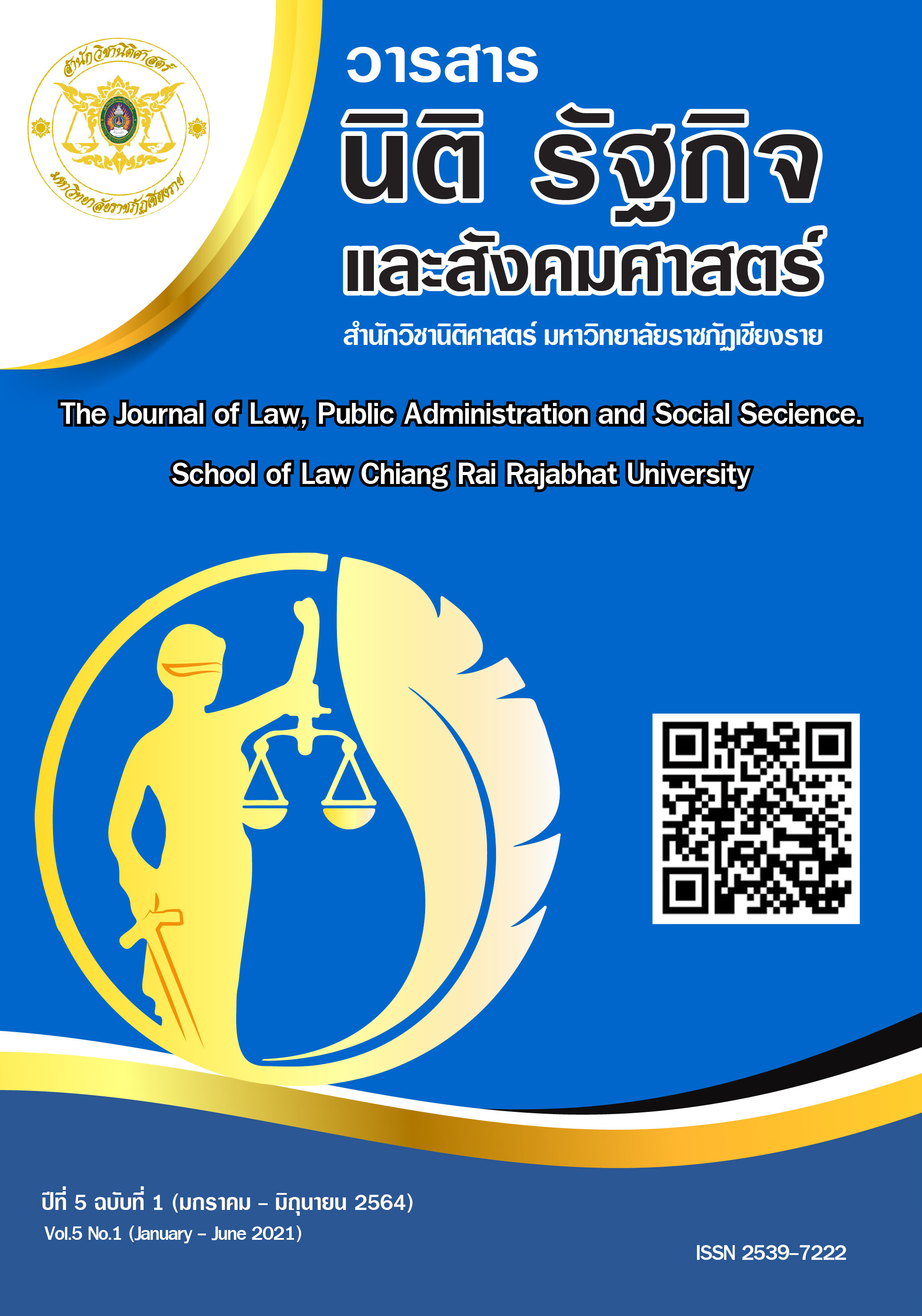Political consequences arising from the judgment of the Constitutional Court after the 2006 coup.
Main Article Content
Abstract
The purpose of this article is to study the political consequences of the verdict of the Constitutional Court after the 2006 coup, which was widely considered during the year 2006, which was considered the year that the judicial political crisis occurred. First in Thailand until May 2014, when the latest political crisis occurred from the coup.
The results of the research showed that the nature of the verdicts of the Constitutional Court in cases in the judicial process since the coup in 2006 resulted in the destruction of only one political force group in many cases. Which affects the politics according to the facts and situations according to the time period. Which can be divided into 4 forms as follows: (1) Decisions that result in the destruction of politicians (2) Decisions that protect the jurisdiction of the courts and independent organizations (3) Decisions that destroy the legitimacy of the government and allow other mechanisms to enter Deal (4) judgment that leads to political vacuum.
This article studies on this issue. The researchers used the concept only through the perspective of some scholars, which was considered not comprehensive, and studied the role of the judiciary in the state for a period of time between 2006 and 2014. Therefore, if the work is in a controversial way in other areas, such as the constitutional intent or the technical explanation of the legal method, it is likely to help to discover the opinion and will complement the issue in subsequent research in more completely.
Article Details
References
ชาญชัย ลิขิตจิตถะ. ประธานศาลฎีกาถึงประธานวุฒิสภา ลงวันที่ 1 มิถุนายน 2549. ใน “เปิดบันทึก ปธ.ศาลฎีกา ย้ำเหตุคว่ำบาตร 3 กกต.” มติชนรายวัน. 2 มิถุนายน 2549, 2.
ธีรยุทธ บุญมี. “พิพากษาหาความยุติธรรมให้ประเทศ เพิ่มดุลยภาพทางการเมืองไทย ก้าวสู่การปฎิรูปเมืองหน 2.” นำเสนอในงานสัมมนาพิเศษ เรื่อง “วิกฤตการเมืองไทย ยุคทุนนิยมไล่ล่า” ในโอกาสครบรอบ 30 ปี หนังสือพิมพ์ ประชาชาติธุรกิจ ที่โรงแรมแกรนด์ไฮเอทเอราวัณ กรุงเทพฯ เมื่อวันที่ 31 พฤษภาคม 2549.
นวภัทร โตสุวรรณ์. และจาตุรงค์ สุทาวัน. ผลของ“หลักนิติธรรมแบบไทย”ต่อระบบกฎหมายและการเมืองภายหลังการรัฐประหาร 2549. การประชุมวิชาการระดับชาตินอร์ทเทิร์นวิจัย ครั้งที่ 6. 29 พฤษภาคม 2563.
ปิยบุตร แสงกนกกุล. ศาลรัฐประหาร : ตุลาการ ระบอบเผด็จการ และนิติรัฐประหาร. กรุงเทพฯ: ฟ้าเดียวกัน, 2562.
วรเจตน์ ภาคีรัตน์. “การกระทำทางรัฐบาลกับคำสั่งศาลปกครองกลางคดี หมายเลขดำที่ 984/2551.” http://public-law.net/publaw/view.aspx?id=1264. สืบค้นเมื่อ 23 พฤษภาคม 2563.
วรเจตน์ ภาคีรัตน์. ด้วยกฎหมายและอุดมการณ์. กรุงเทพฯ: ไชน์ พับลิชชิ่ง, 2558.
สุธาชัย ยิ้มประเสริฐ. “ประวัติศาสตร์นิติศาสตร์ของราษฎร.” https://prachatai.com/journal/2014/09/55706, สืบค้นเมื่อ 23 พฤษภาคม 2563.
สมชาย ปรีชาศิลปกุล. เมื่อตุลาการเป็นใหญ่ในแผ่นดิน. กรุงเทพฯ: บุ๊ค สเคป, 2562.
Ran Hirschl. “The New Constitution and the Judicialization of Pure Politics Worldwide.” Fordham Law Review 75, 2 (2006): 721-53.; Ran Hirschl, The Judicialization of Mega-Politics and the Rise of Political Courts.” Annual Review of Political science 11 (2008): 93-118.


